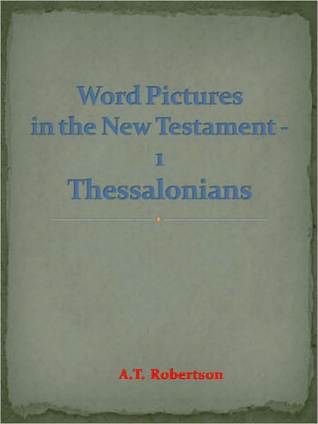Word Pictures in the New Testament - 1 Thessalonians
by A.T. Robertson
Paul, and Silvanus, and Timothy [Paulos kai Silouanos kai Timotheos]. Nominative absolute as customary in letters. Paul associates with himself Silvanus (Silas of Acts, spelled [Silbanos] in D and the papyri), a Jew and Roman citizen, and Timothy, son of Jewish mother and Greek father, one of Paul's converts at Lystra on the first tour. They had both been with Paul at Thessalonica, though Timothy is not mentioned by Luke in Acts in Macedonia till Beroea (Ac 17:14f.). Timothy had joined Paul in Athens (1Th 3:1f.), had been sent back to Thessalonica, and with Silas had rejoined Paul in Corinth (1Th 3:5; Ac 18:5, 2Co 1:19). Silas is the elder and is mentioned first, but neither is in any sense the author of the Epistle any more than Sosthenes is co-author of I Corinthians or Timothy of II Corinthians, though Paul may sometimes have them in mind when he uses "we" in the Epistle.
BUY NOW
Nook, 0 pages
Published November 13th 2010 by New Century Books
© 2025 Bibleportal.com 版权所有.

Archibald Thomas Robertson was born in 1863 and the Civil War was already taking a bad turn for the Southern cause. A.T.'s father was a country doctor and plantation owner who lost the majority of his fortune during and after the war. After suffering the devastating effects of Reconstruction, the family moved to Statesville, North Carolina to work a small farm. There on the farm, A.T. learned to make things grow. He would spend most of his life making the Word of God grow in the hearts of people around the world.
Robertson exemplified the Baptist tradition of preaching scholars. Robertson never lost his love for preaching. One needs only to hear Robertson himself to feel his passion for preaching.
In the early 1900's, AT. was a founding member of the Baptist World Congress now known as The Baptist World Alliance. In 1914 his ministry was also broadened through a series of summer Bible conferences with D.L. Moody and F.B. Meyer, introducing Robertson to thousands of pastors and layman alike. He died of a stroke on September 24, 1934.
... Show more